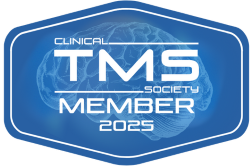
In many cases, the symptoms associated with clinical mental health diagnoses develop gradually, and people don’t know about the most important warning signs to watch for and understand.
While a mental illness may appear in various forms, most people recognize changes in themselves before they receive a formal diagnosis. They have a feeling something isn’t quite right. Before the symptoms escalate, they notice changes in their thoughts, feelings, and behavior. For a majority of people, these changes occur gradually, over time. However, some symptoms may appear and escalate rapidly. Timely, professional intervention can help reduce the severity of symptoms or even prevent the development of a mental health disorder that reaches a clinical threshold.
Mental health is a primary concern in the U.S. in the post-COVID-19 era. Before the pandemic, rates of mental health diagnoses and other negative mental health issues were increasing – most notably, rates of suicidality among teens and young adults – and the situation hasn’t changed.
That’s why it’s important for everyone to understand the prevalence of mental health diagnoses in the U.S. Based on the numbers we share below, it’s almost certain we all know someone with mental health challenges. The National Survey on Drug Use and Health (2021 NSDUH) shows the following prevalence rates of clinical mental health diagnoses.
Mental Health in 2021 in the U.S.
- A total of 57.8 million adults over age 18 had “any mental illness (AMI)”
- 11.3 million adults 18-25 had AMI
- 28.1 million adults 18-25 had AMI
- 17.77 million adults 50+ had AMI
- A total of 14.1 million adults over age 18 had “serious mental illness (SMI)”
- 3.8 million adults 18-25 had SMI
- 7.3 million adults 26-49 has SMI
- 3.0 million adults 50+ had SMI
Those figures tell us that one of every five adults in the U.S have some sort of mental health diagnosis, and for one in every twenty adults in the U.S., the diagnosis is serious.
That’s why it’s important for all of us to learn the early warning signs of a developing or preclinical mental health disorder, which we’ll share below.
Mental Health Challenges: Early Warning Signs & Symptoms
If you observe the following signs or symptoms in yourself or other, they may indicate the presence of a mental health disorder:
- Changes in sleep patterns: too much or too little
- Changes in appetite: eating too much or too little
- Extreme mood changes: rapid or dramatic shifts in emotions
- Persistent sad/depressed feelings
- Withdrawal from friends, family, and activities: new or recent social withdrawal and loss of interest in favorite hobbies/activities/pursuits
- Impaired functioning: an unusual decrease in ability to engage in school, work, or social activities
- Cognitive issues: problems with concentration, memory, or logical thought and speech that have no alternate explanation
- Increased sensitivity to external stimuli: heightened sensitivity to sights, sounds, smells, or touch
- Apathy: loss of initiative or desire to participate in the typical activities of daily life, or any activities at all
- Feeling disconnected: a vague sense of disconnection from self, others, and surroundings
- Illogical/irrational thinking: new, unfounded, exaggerated beliefs about personal ability to understand meanings or influence events
- Nervousness/anxiousness: extreme or exaggerated fear or suspicion of others or a strong, persistent feeling of being on edge
- Unexplained behavior: new, atypical patterns of behavior that appear strange/disturbing to others
Let’s clarify several things about this list. First, with regards to something that’s not on this list: suicidality.
Never ignore talk of suicide. If you or someone you know is in imminent danger, go to a hospital emergency room or call 911 immediately. If you or someone you know is not in imminent danger of harming themselves or others, but in a mental health crisis, please call the national mental health emergency line at 988
First, the purpose of a set of bullet points in an article like this is to offer real information that helps people make informed decisions about mental health in a way that’s clear, straightforward, and easy to understand. This is not a do-it-yourself diagnostic tool, but rather a list of warning signs and symptoms which, if present, indicate that it may be time to seek professional support.
We’ discuss what that might look like in a moment.
Now, more about this list.
With some exceptions, the presence of one or two symptoms/warning signs in isolation, on occasion, is not something to worry about. The exception is suicidality*. When the symptoms of warning signs appear every day, or almost every day, for two weeks or more, that’s different. That’s more than having a few days of sadness or several off days where things don’t feel right. That’s when it’s time to consider taking action.
If you or someone in your life experiences several at a time, for days or weeks, and they impair the ability to study, work, or relate to others, a professional evaluation may be in order. As we mention above, suicidality is the exception: people with suicidal thoughts or intent, or thoughts of harming others, need immediate attention and support.
Taking Action and Getting Help: How to Do It
Research shows that early intervention can minimize symptoms, prevent hospitalization, and improve prognosis. Even if a person does not show clear signs of a diagnosable mental illness, early warning symptoms can be frightening, and stigma may pose a barrier to seeking help. If you or a loved one experiences the symptoms or warning signs of mental illness, you can take action.
Mental Health Warning Signs & Symptoms: Three Essential Steps
1. Get an Evaluation
Arrange a comprehensive mental health evaluation administered by a licensed, experienced mental health professional. Mental health practitioners call these evaluations biopsychosocial assessments. During a biopsychosocial assessment, a clinician does more than count symptoms and compare them to a diagnostic checklist. They identify all the factors that may be associated with the observed symptoms or warning signs – biological, psychological, and social – and integrate them to arrive at an accurate diagnosis and make referrals to an evidence-based treatment program.
2. Educate Yourself
Learn everything you can about mental health diagnoses and conditions, including the warning signs and common symptoms. If you or someone you know receives a diagnosis, then learn everything you can about that diagnosis. Look for anything unique about it that may help you or the person in your life understand more about the diagnosis. In addition, take the time to learn about the different types of treatment available. Treatment may include psychotherapy, standard medications, and lifestyle changes. In some cases, treatment may include new and innovate treatment modalities such as IV ketamine, SPRAVATO®, or a brain stimulation therapy such as transcranial magnetic stimulation (TMS).
3. Seek Support
If you receive a referral for a treatment program, follow up on that referral and engage in treatment. Treatment helps patients manage symptoms, relieve stress, and develop strategies to return to daily life and full functioning. When participating in mental health treatment with psychotherapy, medication, or a technique like TMS, it’s important to follow doctor’s recommendations and follow through with treatment. For people with severe mental health disorders, time-in-treatment and treatment adherence – i.e. staying in treatment and sticking with the treatment plan – are two of the most robust predictors of therapeutic success.
Since every person is different, and every path that leads to a mental health diagnosis is different, no two treatment plans will be identical. That’s why a thorough, personalized assessment and evaluation is essential. Each individual’s situation must be assessed individually, and each treatment plan must be personalized, and align with each patient’s unique personal history and circumstances.
Individualized, Integrated Treatment
Comprehensive treatment to prevent early symptoms from progressing into serious illness may include a combination of the elements we mention above:
- Psychotherapy:
- Individual, family, or group therapy/counseling
- Common modes of psychotherapy include:
- Cognitive behavioral therapy (CBT)
- Dialectical behavior therapy (DBT)
- Motivational interviewing (MI)
- Trauma-informed CBT and/or DBT
- Mindfulness-based cognitive behavioral therapy (MBCBT)
- Medication:
- Traditional medications may include:
- Antidepressants: SSRIs or tricyclic antidepressants
- Anxiolytics
- Mood stabilizers
- Antipsychotics
- New medications may include:
- IV ketamine
- SPRAVATO®
- Brain stimulation techniques:
- Traditional:
- Electroconvulsive therapy (ECT)
- New:
- Transcranial magnetic stimulation (TMS)
- Traditional:
- Traditional medications may include:
In many cases, it’s important for family members or spouses to participate in some way – to the extent the provider and patient deem appropriate – in the psychotherapy process. When families and spouses understand what’s happening with the individual in treatment, they can help them make treatment progress, and understand how best to support them after discharge from a formal treatment program.
If you, a friend, or a family member shows the warning signs and/or symptoms of a mental health disorder – don’t lose hope!
With the right treatment plan, you can get symptoms under control and feel happy again. Evidence shows that the sooner a person who needs mental health treatment gets the treatment they need, outcomes improve.
Relief Mental Health can help you get the treatment you need – and get you on the road to recovery as soon as possible.

